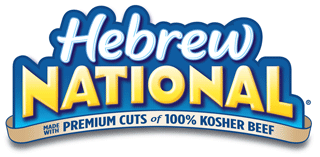By MORDECAI SPECKTOR
On July 26, ConAgra Foods, Inc. filed a motion in U.S. District Court in St. Paul to dismiss the lawsuit brought by a group of consumers who contend that the food giant’s Hebrew National hot dogs and other beef products are not kosher (6-22-12 AJW).
Attorneys for the plaintiffs filed an amended complaint on July 10, which had some changes to the language of the original complaint. The amended complaint also included affidavits filed in previous lawsuits by officials of AER Services, Inc., which does kosher slaughtering under a contract with ConAgra, and Triangle K, the kosher supervisory firm for Hebrew National.

Hart Robinovitch, lead attorney for the plaintiffs, described the changes in the amended complaint as a matter of legal “housekeeping,” and making the arguments “more clearly.” Robinovitch is with the Minneapolis law firm of Zimmerman Reed.
The federal court docket includes a notice that there will be a hearing on ConAgra’s motion to dismiss the lawsuit, on Nov. 30, before Judge Donovan W. Frank.
ConAgra moved to dismiss the amended complaint “in its entirety and with prejudice.” The motion and exhibits run to 145 pages.
ConAgra cites the “Establishment Clause” of the First Amendment, which “bars courts from entertaining disputes — such as this one — over the kosher status of food,” in arguing that the federal court does not have jurisdiction over the matter.
The motion to dismiss asserts, among many things, that the resolution of the plaintiffs’ claims “necessarily will require this Court to enforce kashrut and evaluate the religious correctness of kosher determinations made by the rabbis of Triangle K.” The motion states: “A determination as to the kosher status of a food is a wholly religious decision.”
The plaintiffs contend that Hebrew National cut corners in the kosher slaughtering process and in certifying beef sold to ConAgra, the parent company, as kosher. The 11 plaintiffs say that they paid a premium for Hebrew National products based on the company’s claims that they were made with “100 percent kosher beef”; since allegedly this is not the case, they argue that Hebrew National must stop making such claims and provide recompense to consumers who overpaid.
Attorneys for the plaintiffs and for ConAgra held a teleconference on July 24, in which they discussed ConAgra’s motion to dismiss the amended complaint. There was “no agreement regarding the resolution of the motion”; but ConAgra agreed not to object if the plaintiffs request a “reasonable amount of additional time to file their response.”
(American Jewish World, 8.3.12)


















